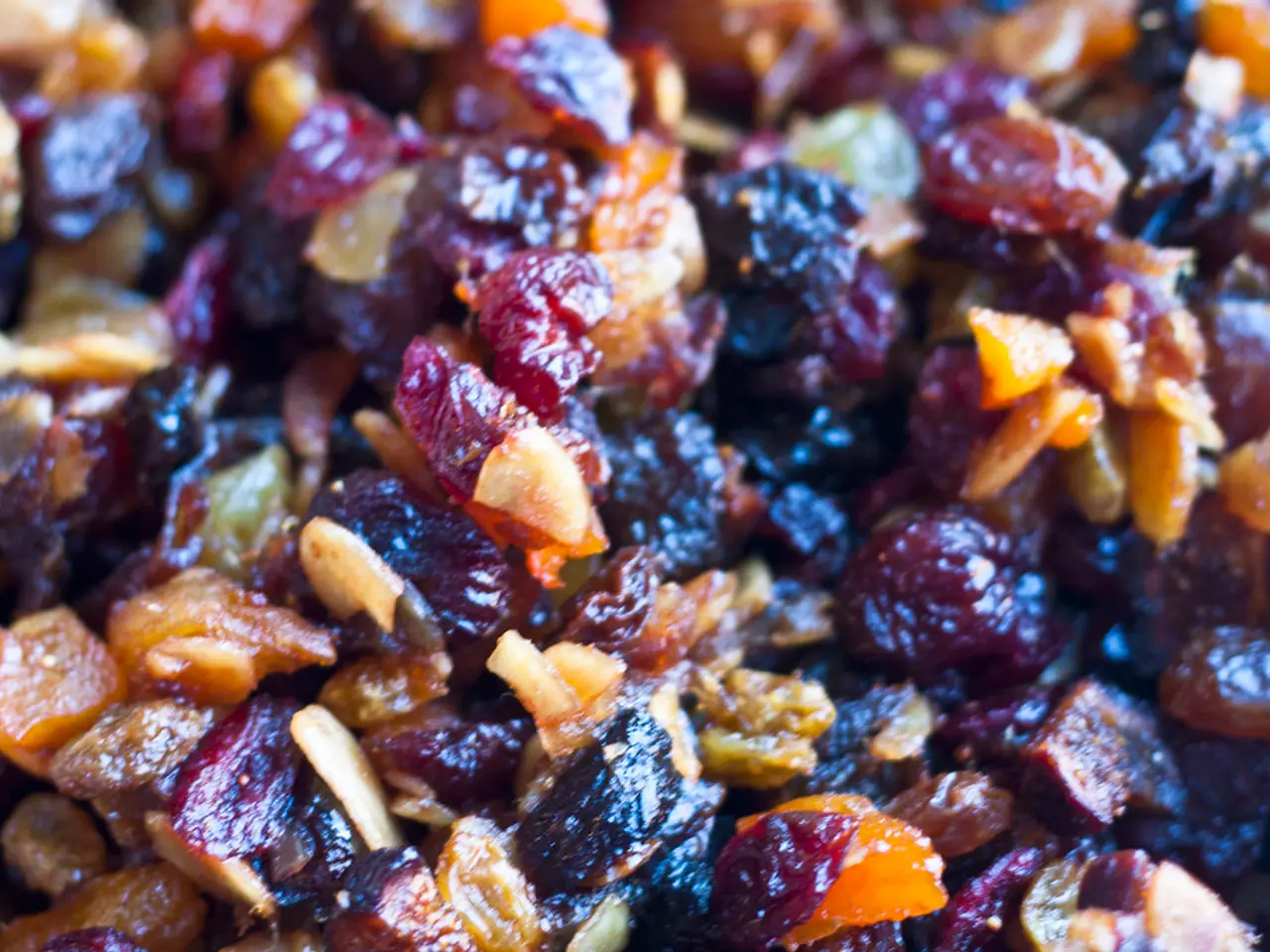Home-Prepared Canine Nutrition Recipes
Feeding your dog a homemade diet can be a rewarding way to ensure they receive nutritious, high-quality meals while strengthening your bond with them. However, it's crucial to prepare homemade dog food with care, ensuring it meets your dog's specific dietary needs.
Ensuring Nutritional Adequacy
When transitioning your dog to a homemade diet, closely monitor their weight, energy levels, coat condition, and stool quality. Regular health checkups are vital to adjust the diet as needed. A veterinarian or pet nutritionist should evaluate your homemade dog food recipes to confirm they meet your dog's requirements based on its age, breed, size, and activity level.
Avoid Harmful Ingredients
Avoid harmful ingredients like onions, garlic, chocolate, grapes, and excessive salt in homemade dog food. These ingredients can be harmful to your dog's health.
Balanced Homemade Dog Food Recipes
Several veterinarians and pet nutritionists recommend balanced homemade dog food recipes that combine lean protein, complex carbohydrates, vegetables, healthy fats, and essential supplements such as calcium.
Here are two vet-approved recipes:
Recipe 1
- 1 whole chicken
- 4 cups cooked whole-grain brown rice
- Pinch of salt
- 1 tbsp wheat germ
- 1 tbsp apple cider vinegar
- 1 tsp brewer’s yeast
- 1 tbsp bone meal
- 1 tbsp shredded, unsweetened coconut
- 1 cup blueberries
- 1 cup diced carrots
- 1 tbsp coconut oil
- 2 tbsp kefir
- 1 tsp spirulina
- 1 tsp powdered ginger
- 1 tsp turmeric powder
Instructions: Simmer the chicken with rice, salt, and supplements, then debone and mix with vegetables and superfoods as it cools, forming into patties for serving. Portion sizes should be adjusted according to the dog’s weight and activity level.
Recipe 2
- 2 kg ground chicken
- 380 g chicken or beef liver (organ meat for extra vitamins/minerals)
- 150 g brown or white rice
- 215 g pumpkin puree
- 200 g frozen spinach
- 4 chopped carrots
- 2 chopped sweet potatoes
- 340 g green beans
- 340 g peas
- 2 tbsp coconut oil
- 4 cups water
- 5 tsp ground eggshells (for calcium)
This recipe balances protein, fiber-rich veggies, carbs, healthy fats, and calcium supplementation for joint, coat, and gut health. Cooking instructions typically involve gently cooking ingredients to preserve nutrient integrity.
General Advice for Homemade Dog Food
- Protein should be the foundation of each meal, sourced from lean meats (chicken, turkey, beef, lamb), fish (salmon, sardines), eggs, or organ meats for amino acids, vitamins, and minerals.
- Carbohydrates can come from cooked whole grains like brown rice or starchy vegetables like sweet potatoes.
- Vegetables provide vital fiber, vitamins, and antioxidants, but should be dog-safe varieties like carrots, spinach, and green beans.
- Healthy fats from sources like coconut oil or fish oil support skin and coat health.
- Calcium supplementation through bone meal, eggshell powder, or commercially available blends is critical to balance homemade diets.
Because homemade diets risk nutrient imbalances if not carefully planned, consultation with a veterinarian or veterinary nutritionist is essential before adopting long-term homemade feeding. Commercial vet-formulated nutrient blends are also available to complement protein and vegetable bases for balanced homemade meals.
Ensuring a balanced lifestyle for your pet, consider incorporating homemade dog food recipes into their diet that combine lean proteins, complex carbohydrates, vegetables, healthy fats, and essential supplements, such as Recipe 1 and Recipe 2, which have been vet-approved. It's essential to avoid harmful ingredients like onions, garlic, chocolate, grapes, and excessive salt when preparing homemade dog food.




